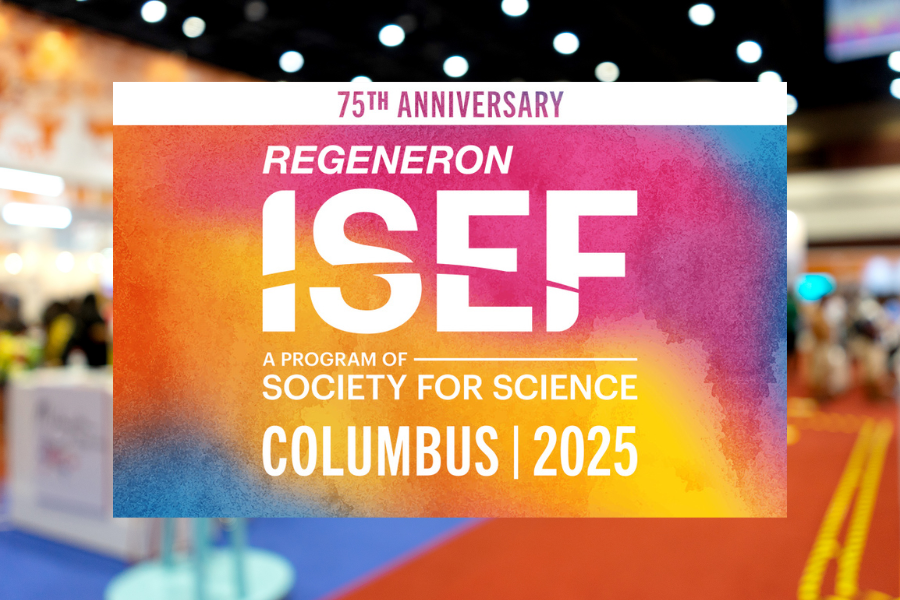As university admissions grows ever more competitive, students are looking for ways to distinguish themselves to admissions officers. Awards they can win that make colleges sit up and take notice, and which position them to approach the most competitive majors, especially in the STEM fields. Science fairs have long been a venue for this, and today, we’re going to be talking about one of the most prestigious: Regeneron’s International Science and Engineering Fair (ISEF).
We’re going to explore what this fair is, how it works, and how you can enter it. We’re also going to look into whether you should consider doing so, and why colleges hold this fair in high regard. We’ll also give a few tips on the best ways to prepare for and compete in science fairs generally, so you know what you’re doing when you do. Let’s get started!
What is ISEF?
First founded in 1950, ISEF is an annual science fair and competition. It attracts more than 1,800 submissions on average, with students from more than 75 countries and territories competing each year. Regeneron Pharmaceutical is the principal sponsor of the fair, but other technology companies contribute as well. Winners at the fair can receive a variety of scholarships, grants, and other prizes.
The 2025 fair is their 75th anniversary, and is occurring May 10-16 in Columbus Ohio. The venue of the fair changes from year to year, but is always in the continental United States. The awards available are as follows:
- Each of the 22 categories has their own Grand Awards of 1st through 4th place, with a cash prize.
- A number of other awards are then distributed among the winners of the top awards; these are scholarships of $10,000-100,000 in value.
- Special awards are also given by independent organizations who want to recognize work in specific disciplines done at the fair.
You are fully responsible for choosing which category you compete in. We describe this in more detail, including advice on how to pick a category, in a later section. ISEF allows submissions in the following categories:
- Animal Sciences (ANIM)
- Behavioral and Social Sciences (BEHA)
- Biochemistry (BCHM)
- Biomedical and Health Sciences (BMED)
- Biomedical Engineering (ENBM)
- Cellular and Molecular Biology (CELL)
- Chemistry (CHEM)
- Computational Biology and Bioinformatics (CBIO)
- Earth and Environmental Sciences (EAEV)
- Embedded Systems (EBED)
- Energy: Sustainable Materials and Design (EGSD)
- Engineering Technology: Statics and Dynamics (ETSD)
- Environmental Engineering (ENEV)
- Materials Science (MATS)
- Mathematics (MATH)
- Microbiology (MCRO)
- Physics and Astronomy (PHYS)
- Plant Sciences (PLNT)
- Robotics and Intelligent Machines (ROBO)
- Systems Software (SOFT)
- Technology Enhances the Arts (TECA)
- Translational Medical Science (TMED)
The fair itself operates in a funnel. Students first compete in regional or state fairs, and the top entrants from those are selected to attend the main ISEF competition.
How to Compete in ISEF
Step one for competing is to find an affiliated fair. These regional fairs send the best entrants on to the main annual fair, and are a chance for you to familiarize yourself with the format of the competition, and to receive feedback on your submission. While ISEF is only open to students in grades 9-12, there are regional fairs open to students in grades 6-8. This is a great chance to get a head start on exploring science, and refining ideas you may investigate in greater depth in the future.
Fairs in the US are generally held between January and March, with the exact dates being determined by the organization hosting the fair. International fairs may have different schedules, but all take place before the main competition occurs in May.
All submissions must abide by ISEF’s rules and guidelines. These exist to make sure research is conducted safely and ethically, and in a manner consistent with scientific rigor. We recommend reading the rules in full yourself if you are going to compete, but here are the core points:
- All of the work must be done by a student (or students; teams of up to three are allowed to compete). Adults may sponsor or supervise the work, especially if there is a potential for hazard, but the work itself must be done by the student.
- An adult sponsor is necessary to oversee the project, as is a qualified scientist.
- Any project involving human participants must be approved by an Institutional Review Board (IRB).
- There are further specific rules for projects involving human participants, nonhuman living participants, and hazardous materials.
Review these rules carefully when planning out your project; you don’t want to go through the entire research process only to have your work invalidated because you did not properly follow these rules.
There are a variety of forms you must fill out when beginning your project to confirm that you are operating in accordance with the rules. These may be found here. Again, make sure these are in order before getting started on your project.
Next, you need to decide what question you are researching. This is up to you; it must fit within one of their 22 categories, but it is up to you which category specifically your project is entered under, as many projects may have aspects which line up with multiple different categories.
Finally, this is a science fair; all research is to be presented in a standardized format, so it may be reviewed by judges and explored by attendees. The rules for your display may be found here. This is not something to worry about so much when actually conducting your research, but does become a major factor later on.
Judging at ISEF
Judges for this fair must have either 6 years of professional experience in a related field, or hold a PhD or MD, or be a graduate student within a year of their dissertation defense. The goal is that all judges be experts in the fields they are judging on, and fully qualified to understand the research being undertaken. There are policies in place to make sure there are no conflicts of interest for judges.
Projects are judged on the following criteria:
- Creativity. All research should be original, but they also look to see if you have demonstrated unique perspectives or taken an original approach to a given problem.
- You are judged on how much assistance you received, and how much of the work you did on your own.
- Your research question should have a clear purpose, identify the contribution to the scientific field of study, and be testable.
- Your methodology should have a well planned design and data collection methods, and have well defined variables and controls.
- Your data collection should be systematic and replicable. You should apply relevant statistical methods to analyze it. You should have collected enough data to support your conclusions.
- Your poster needs to be logically organized, with clearly readable figures, and supporting documentation included as necessary.
- Your presentation needs to show that you understand the science behind the project, be able to answer relevant questions, and understand the results and the limitations of your conclusions.
These factors are used to determine how well you understood the research you undertook and the potential impact and relevance of the conclusions you came to.
Is ISEF (or Science Fairs Generally) a Good Opportunity for You?
Many high school students want to explore the fields of science or engineering in more depth than is available in their classes. In the case of most of these fields, the only way to truly understand them is to do them; some things can only be learned by doing, and research is one.
Thus, students who think they might want to pursue science, but are unsure, or who know they want to pursue the field but can’t get the experience they need through coursework, should definitely consider ISEF or other science fairs. The experience of formulating a research question and pursuing it is valuable, regardless of whether or not you end up placing in the end.
Of course, there is significant value to be found in doing well in one of these fairs as well. Colleges admire significant academic achievements, and receiving a top prize at a major science fair such as ISEF definitely qualifies. Doing so allows you to show off your interest in science, while also providing an external confirmation that you’re pretty great at it, something colleges love to see.
Choosing the Right Topic
As a final note, a big portion of both doing well in a science fair, and impressing colleges with what you’ve done, is choosing the right topic to investigate. Science is an incredibly broad field; the 22 different categories offered by ISEF help illustrate that. Here is our guide to finding a good topic for your project:
- Start broad, then narrow down. It’s good to start with a general field, then pick ever more niche subfields within it. You might start with ecology as a whole, then narrow to wetlands ecology, then narrow further to frogs and their habitats.
- Do your background reading. A lot of questions have already been asked, and you don’t want to simply recreate work that’s already been done. Once you have your narrow field, read papers in it, to see what kinds of research questions other scientists are asking. Many of these may also suggest topics for future study, including things available to you.
- Understand your limits. Scientific research as a whole does not always require a laboratory and specialized equipment, but some definitely does. Know what resources you have access to when deciding what question to investigate; the amount you will be able to do with access to a science lab at your high school is more than you could do at home in your kitchen, but less than what could be accomplished with full lab access.
Finding a mentor to help guide you through this research process is key as well, be that a teacher at your school, a professor at a local university, or a research mentor like you can find at Ivy Scholars. In any case, you should look for guidance while undertaking your research. You must do the work yourself of course, but a mentor can make sure you are undertaking your experiments in a safe and ethical fashion, and following the best practices for research in a field.
Final Thoughts
Science fairs have a very old tradition (as we can see with ISEF celebrating its 75th anniversary), and remain a great way for students to get involved in the scientific research process. We hope that this article has given you a good insight into one such fair, and what it takes for you to partake in what it offers.
Standing out in college admissions is an ever present challenge, especially as top schools receive ever more applications. If you want help finding the right opportunities to help highlight your strengths, or for planning your own science fair project with one of our research mentors, schedule a free consultation today. We’re always happy to hear from you.








